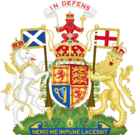Abolition of Feudal Tenure etc. (Scotland) Act 2000 facts for kids
| Act of Parliament | |

|
|
| Citation | 2000 asp 5 |
|---|---|
| Introduced by | Jim Wallace |
| Territorial extent | |
| Dates | |
| Royal assent | 9 June 2000 |
| Commencement | 9 June 2000 |
|
Status: Current legislation
|
|
The Abolition of Feudal Tenure etc. (Scotland) Act 2000 was an important law in Scotland. It was passed by the Scottish Parliament on May 3, 2000. This Act officially ended an old system of land ownership called feudal tenure. The Queen gave her approval (called Royal Assent) on June 9, 2000, making it a full law.
Contents
What the Act Changed
This law made big changes to how land was owned in Scotland. It got rid of a very old system that had been around for hundreds of years.
Ending Feudal Land Ownership
Before this Act, land in Scotland was often held under a system called feudal tenure. This meant that someone (the "vassal") used the land, but they didn't fully own it. Instead, they held it from a "superior," who was like a landlord. The vassal often had to pay a regular fee to the superior, called a "feu duty."
The Act officially ended these feu duties on November 28, 2004. This date was chosen because it was Martinmas, one of the traditional Scottish payment days. After this date, the people who used to be "vassals" became the full owners of their land. The "superiors" no longer had any rights over that land.
Compensation for Superiors
For two years after the change, former superiors could ask for a one-time payment. This payment was meant to make up for the feu duties they would no longer receive. However, because these feu duties had been fixed a long time ago, their value had become very small due to inflation. So, the compensation payments were usually quite small compared to the land's actual value.
New Rules for Land Use
The Act also changed how rules about land use were handled. These rules are called "title conditions" or "real burdens." They are like agreements about what you can or cannot do with a piece of land. For example, a rule might say you can't build a very tall fence.
Before the Act, only the superior could usually enforce these rules. They could even allow a land owner to ignore a rule, often for a fee. The new law changed this. It got rid of old rules that only the superior could enforce. Now, only rules that benefit neighboring property owners or certain public bodies (like the local council) can be kept. This means that if a rule affects your neighbor's land, they might be able to enforce it.
Other Important Laws
After this Act, two more important laws were passed to help with these changes:
- The Title Conditions (Scotland) Act 2003 helped create new rules for land use.
- The Tenements (Scotland) Act 2004 dealt with rules for buildings that are divided into flats, like apartment blocks.
All three of these Acts came into effect on November 28, 2004, the same day feu duties ended.
See also
 | Audre Lorde |
 | John Berry Meachum |
 | Ferdinand Lee Barnett |

